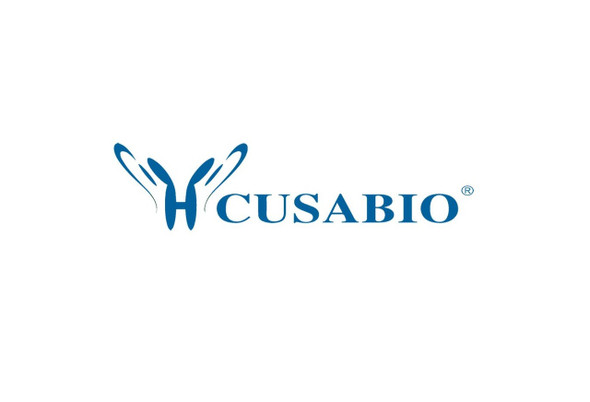Cusabio Human Recombinants
Recombinant Human Leukosialin (SPN), partial | CSB-EP022590HU
- SKU:
- CSB-EP022590HU
- Availability:
- 13 - 23 Working Days
Description
Recombinant Human Leukosialin (SPN), partial | CSB-EP022590HU | Cusabio
Alternative Name(s): Galactoglycoprotein ;GALGPLeukocyte sialoglycoprotein;Sialophorin; CD43
Gene Names: SPN
Research Areas: Immunology
Organism: Homo sapiens (Human)
AA Sequence: STTAVQTPTSGEPLVSTSEPLSSKMYTTSITSDPKADSTGDQTSALPPSTSINEGSPLWTSIGASTGSPLPEPTTYQEVSIKMSSVPQETPHATSHPAVPITANSLGSHTVTGGTITTNSPETSSRTSGAPVTTAASSLETSRGTSGPPLTMATVSLETSKGTSGPPVTMATDSLETSTGTTGPPVTMTTGSLEPSSGASGPQVSSVKLSTMMSPTTSTNASTVPFRNPDENSR
Source: E.coli
Tag Info: N-terminal 6xHis-SUMO-tagged
Expression Region: 20-253aa
Sequence Info: Extracellular Domain
MW: 39.5 kDa
Purity: Greater than 90% as determined by SDS-PAGE.
Relevance: One of the major glycoproteins of thymocytes and T lymphocytes. Plays a role in the physicochical properties of the T-cell surface and in lectin binding. Presents carbohydrate ligands to selectins. Has an extended rodlike structure that could protrude above the glycocalyx of the cell and allow multiple glycan chains to be accessible for binding. Is a counter-receptor for SN/Siglec-1 . During T-cell activation is actively roved from the T-cell-APC (antigen-presenting cell) contact site thus suggesting a negative regulatory role in adaptive immune response .
Reference: Initial characterization of the human central proteome.Burkard T.R., Planyavsky M., Kaupe I., Breitwieser F.P., Buerckstuemmer T., Bennett K.L., Superti-Furga G., Colinge J.BMC Syst. Biol. 5:17-17(2011)
Storage: The shelf life is related to many factors, storage state, buffer ingredients, storage temperature and the stability of the protein itself. Generally, the shelf life of liquid form is 6 months at -20?/-80?. The shelf life of lyophilized form is 12 months at -20?/-80?.
Notes: Repeated freezing and thawing is not recommended. Store working aliquots at 4? for up to one week.
Function: One of the major glycoproteins of thymocytes and T lymphocytes. Plays a role in the physicochemical properties of the T-cell surface and in lectin binding. Presents carbohydrate ligands to selectins. Has an extended rodlike structure that could protrude above the glycocalyx of the cell and allow multiple glycan chains to be accessible for binding. Is a counter-receptor for SN/Siglec-1 (By similarity). During T-cell activation is actively removed from the T-cell-APC (antigen-presenting cell) contact site thus suggesting a negative regulatory role in adaptive immune response (By similarity).
Involvement in disease:
Subcellular Location: Membrane, Single-pass type I membrane protein
Protein Families:
Tissue Specificity: Cell surface of thymocytes, T-lymphocytes, neutrophils, plasma cells and myelomas.
Paythway:
Form: Liquid or Lyophilized powder
Buffer: If the delivery form is liquid, the default storage buffer is Tris/PBS-based buffer, 5%-50% glycerol. If the delivery form is lyophilized powder, the buffer before lyophilization is Tris/PBS-based buffer, 6% Trehalose, pH 8.0.
Reconstitution: We recommend that this vial be briefly centrifuged prior to opening to bring the contents to the bottom. Please reconstitute protein in deionized sterile water to a concentration of 0.1-1.0 mg/mL.We recommend to add 5-50% of glycerol (final concentration) and aliquot for long-term storage at -20?/-80?. Our default final concentration of glycerol is 50%. Customers could use it as reference.
Uniprot ID: P16150
HGNC Database Link: HGNC
UniGene Database Link: UniGene
KEGG Database Link: KEGG
STRING Database Link: STRING
OMIM Database Link: OMIM









